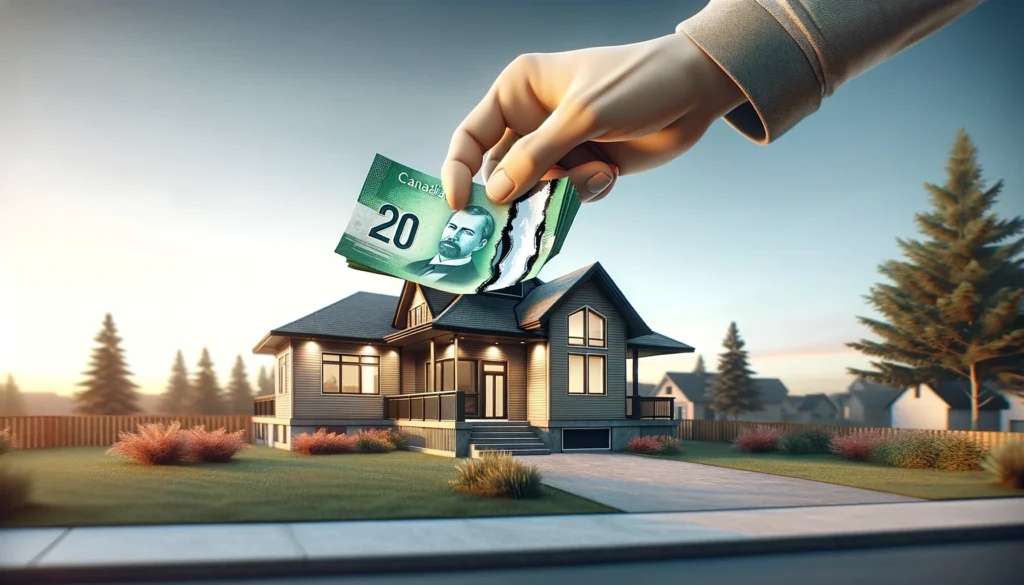When purchasing a home, it’s essential to consider not only your current needs and preferences but also the potential resale value of the property. By making smart decisions during the buying process, you can ensure that your home will be attractive to future buyers and command a higher price when it’s time to sell. In this blog post, we’ll explore the various ways you can buy a home with resale value in mind.
Location, Location, Location
One of the most critical factors in determining a home’s resale value is its location. When house hunting, consider the following:
- Desirable neighbourhoods: Look for homes in sought-after areas with good schools, low crime rates, and easy access to amenities like shopping, dining, and entertainment.
- Proximity to public transportation: Homes near bus routes, train stations, or other public transit options are often more valuable, as they appeal to a wider range of buyers.
- Future development plans: Research the area’s future development plans to ensure that any upcoming projects will enhance the neighbourhood’s value rather than detract from it.
Home Features that Boost Resale Value
When evaluating a home’s potential resale value, pay attention to the following features:
- Updated kitchens and bathrooms: Modern, well-maintained kitchens and bathrooms are significant selling points for future buyers. Look for homes with recently updated spaces or those that have the potential for easy upgrades.
- Energy-efficient features: Homes with energy-efficient appliances, windows, and insulation are increasingly popular among buyers, as they offer long-term savings on utility bills.
- Outdoor living spaces: Properties with attractive, functional outdoor areas like patios, decks, or gardens can command a higher resale value, especially in areas with mild climates.
- Flexible floor plans: Open concept layouts and flexible spaces that can be easily adapted to different lifestyles are more appealing to a broader range of buyers.
Avoid Homes with Major Issues to Increase Resale Value
While some minor repairs and updates can be expected when buying a home, it’s best to avoid properties with significant issues that could negatively impact resale value, such as:
- Foundation problems: Homes with structural issues can be costly to repair and may deter future buyers.
- Outdated electrical or plumbing systems: Extensive updates to these essential systems can be expensive and time-consuming.
- Significant water damage or mould: These issues can indicate more serious problems and may require extensive remediation.
Consider the Home’s Age and Style
The age and architectural style of a home can also influence its resale value:
- Newer homes: Properties built within the last decade often have modern features and layouts that appeal to contemporary buyers, making them easier to sell.
- Classic styles: Timeless architectural styles like Colonial, Craftsman, or Tudor can hold their value well, as they have enduring appeal.
- Unique or niche styles: Homes with highly unique or niche designs may have a more limited pool of interested buyers, potentially impacting resale value.
Make Smart Renovations and Updates to Elevate Resale Value
If you purchase a home that needs some work, focus on renovations and updates that will provide the best return on investment when it’s time to sell:
- Kitchen and bathroom remodels: Updating these high-traffic areas with modern finishes and fixtures can significantly boost resale value.
- Painting: A fresh coat of paint in neutral colours can make a home feel updated and move-in ready for future buyers.
- Flooring: Replacing worn or outdated flooring with hardwood, tile, or high-quality laminate can enhance a home’s appeal.
- Curb appeal: Investing in landscaping, exterior paint, and other improvements to a home’s exterior can create a strong first impression for potential buyers.
Work with Experienced Professionals
To ensure that you’re making a smart investment, collaborate with experienced professionals throughout the home buying process:
- Real estate agents: Work with a knowledgeable agent who understands the local market and can guide you toward homes with strong resale potential.
- Home inspectors: Hire a thorough home inspector to identify any potential issues that could impact the home’s value or require costly repairs.
- Contractors: If you plan to make renovations or updates, work with reputable contractors who can provide quality work at a fair price.
Be Prepared to Compromise
While it’s important to consider resale value when buying a home, it’s also essential to find a property that meets your current needs and budget. Be prepared to make some compromises, such as:
- Size: A smaller home in a desirable location may have better resale value than a larger home in a less sought-after area.
- Updates: A home that needs some cosmetic updates may be more affordable upfront and allow you to make improvements that suit your taste while still boosting resale value.
- Amenities: While certain amenities like a pool or a large yard may be attractive to you, they may not always provide the best return on investment when it comes to resale value.
Conclusion
Buying a home with resale value in mind requires careful consideration of various factors, from location and home features to age, style, and potential for updates. By working with experienced professionals, focusing on smart renovations, and being prepared to make some compromises, you can find a home that meets your current needs while also providing a strong return on investment when it’s time to sell. Remember, a home is not only a place to live but also a significant financial asset, so it’s essential to approach the buying process with both your heart and your head.



